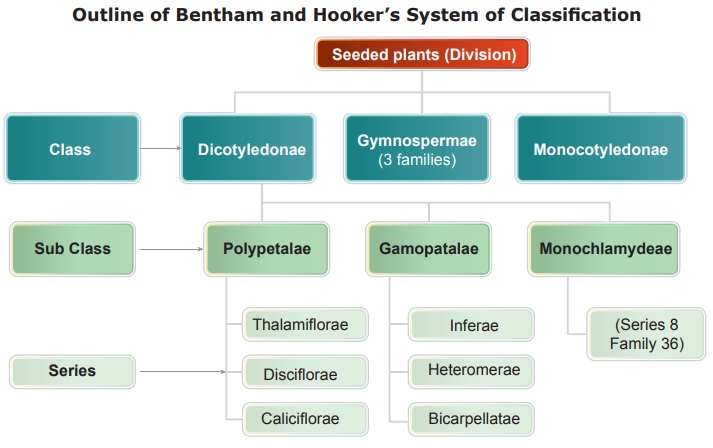Plant Kingdom | Chapter 17 | 8th Science - Taxonomy | 8th Science : Chapter 17 : Plant Kingdom
Chapter: 8th Science : Chapter 17 : Plant Kingdom
Taxonomy
Taxonomy
Taxonomy is the branch of biology
that deals with the study of identification, classification, description and
nomenclature of living organisms. The word taxonomy
is derived from two Greek words (Taxis
means arrangement and Nomos means
laws). The word 'taxonomy' was first coined by Augustin-Pyramus de Candolle.
Classification
Plants are arranged into different
groups and categories on the basis of similarities and differences. It is
called classification. There are four types of classification.
1. Artificial system of
classification
2. Natural system of classification
3. Phylogenetic system of
classification
4. Modern system of classification
1.
Artificial system of classification
This is the earliest system of
classification in plants. Plants are classified on the basis of one or few
morphological characters. The most famous artificial system of classification
is Linnaeus classification which was proposed by Carolus Linnaeus in his book Species
plantarum.
2.
Natural system of classification
In this system, plants are
classified on the basis of several characters. Bentham and Hooker’s
classification is an example of natural system of classification. This system
of classification is based on morphological and reproductive characters of the
seeded plants. Bentham and Hooker published their natural system
of classification in their book named General
Plantarum in three volumes. This classification is widely used in many
herbaria and botanical gardens all over the world.

Herbarium is the
collection of pressed, dried plants pasted o a sheet and arranged according to
any one of the accepted systems of classification.
Related Topics